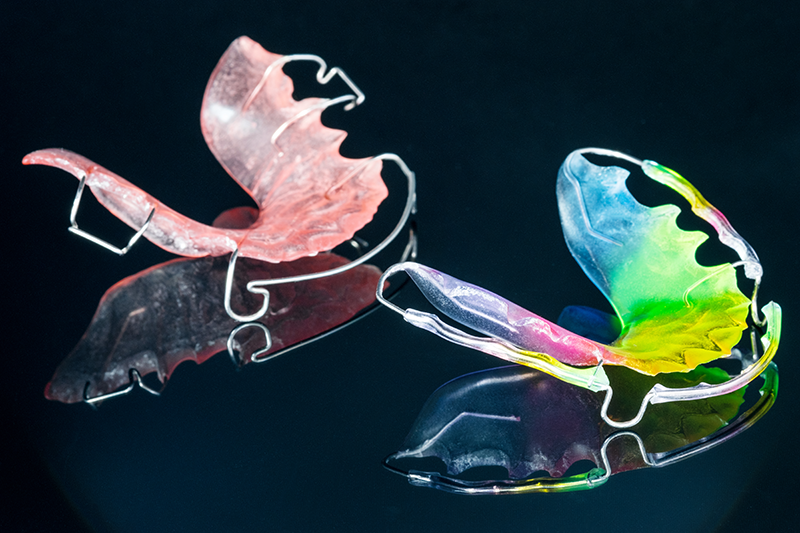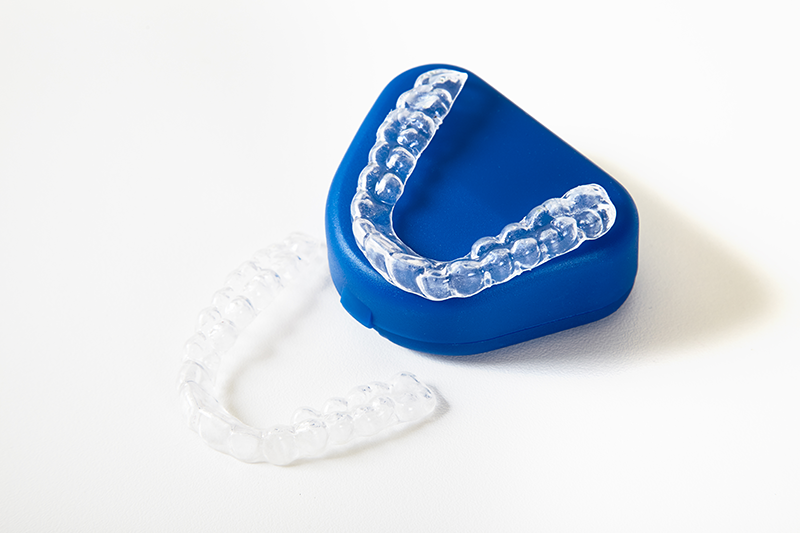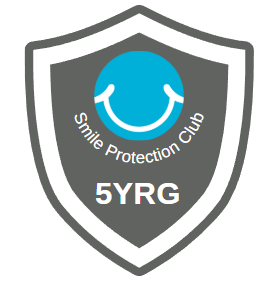Life With Braces
Now that you have your braces, how do you take care of them? It’s important for you to know how to properly take care of your braces throughout your entire orthodontic treatment.
Eating with Braces
Don’t worry; you’ll be eating popcorn and snacking on potato chips again in no time! However, before you can start enjoying some of the treats you love, you will need to take special care to avoid any foods that could damage your new appliances.
Foods You Can Eat With Braces
- Dairy – soft cheese, pudding, milk-based drinks
- Breads – soft tortillas, pancakes, muffins w/o nuts
- Grains – pasta, soft cooked rice
- Meats/poultry – soft cooked chicken, meatballs, lunch meats
- Seafood – tuna, salmon, crab cakes
- Vegetables – mashed potatoes, steamed spinach, beans
- Fruits – applesauce, bananas, fruit juice
- Treats – ice cream w/o nuts, milkshakes, Jell-O, soft cake
Soreness Caused from Braces and Appliances
When you first get your braces, you may notice that your teeth and mouth feel a little tender or sore. This is perfectly normal for patients who have just gotten their braces put on, and we promise your mouth will not be sore forever! To relieve the pain, we recommend dissolving one teaspoon of salt in eight ounces of lukewarm water. Swish and gargle this solution in your mouth for just a couple of minutes (do not swallow the saltwater).
If the pain is more severe and does not go away after rinsing, you can also try taking a pain reliever. It is also not uncommon for your lips, cheeks, and tongue to become irritated for one to two weeks as they toughen and become used to the braces. We would be happy to give you some wax that you can put over the braces to lessen the tenderness. If you need some wax, please let us know!
Loose Teeth
If your teeth begin feeling a little loose, don’t worry; this is normal! Your braces must first loosen your teeth in order to move them into the right position. Once your teeth have been repositioned, they will no longer be loose.
Loose Wires and Bands
The wires and bands on your braces may come loose. If this happens, please contact us as soon as possible so that we can check and repair your appliance. If any piece of your appliance comes off, be sure to save it and bring it to the office with you.
You can temporarily fix the loose wire by using the back of a spoon or the eraser end of a pencil to carefully and gently push the wire back into place. If the loose wire is causing irritation to your lips or cheeks, put wax or a wet cotton ball over the broken wire to relieve the pain.
Take Care of Your Appliances
Damaged appliances can increase the length of your treatment process, so be sure to take care of all your appliances. Your teeth and jaw can only move into their correct positions if you consistently wear the rubber bands, headgear, retainer, or other appliances prescribed by your doctor.
Playing Sports with Braces
Game, Set, Match – we have great news for athletes! You can still play sports even while undergoing orthodontic treatment! If you do play sports, it’s recommended that you wear a mouthguard in order to protect your teeth and your appliance. Let your doctor know if you need help finding the right mouthguard for the best protection.
In case of a sports emergency, be sure to immediately check your mouth and your appliance for any damage that may have occurred. If you notice any loose teeth, or if your appliance has been damaged, please contact our office right away. You can temporarily relieve the discomfort with wax or by rinsing your mouth with warm saltwater.
Foods to Avoid with Braces
- Chewy foods – bagels, licorice
- Crunchy foods – popcorn, chips, ice
- Sticky foods – caramel candies, chewing gum
- Hard foods – nuts, hard candies
- Foods that require biting into – corn on the cob, apples, carrots
Emergency Care
True orthodontic emergencies are very rare, but when they do occur we are available to you. As a general rule, you should call the office when you experience severe pain or when you have a painful appliance problem that you can’t take care of yourself. We’ll be able to schedule an appointment to resolve the problem.
You might be surprised to learn that you may be able to temporarily solve many problems yourself until you schedule an appointment with our office. When working with your appliances, you need to know the names of the parts of your appliances so you are able to identify what part is broken or out of place. After alleviating your discomfort, it is very important that you still call our office as soon as possible to schedule a time to repair the problem. Allowing your appliance to remain damaged for an extended period of time may result in disruptions in your treatment plan.
General Soreness
When you get your braces on, you may feel general soreness in your mouth and teeth may be tender to biting pressures for three to five days. This can be relieved by rinsing your mouth with a warm saltwater mouthwash. Dissolve one teaspoonful of salt in 8 ounces of warm water, and rinse your mouth vigorously. Placing Orabase on the affected area may help; this can be found in a pharmacy. If the tenderness is severe, take aspirin or whatever you normally take for headache or similar pain.
The lips, cheeks and tongue may also become irritated for one to two weeks as they toughen and become accustomed to the surface of the braces. You can put wax on the braces to lessen this. We’ll show you how!
Headgear
Sometimes headgear discomfort is caused by not wearing the headgear as instructed by your orthodontist. Please refer to the instructions provided by your orthodontist. If the facebow is bent, please call our office for assistance. Surprisingly, the headgear may hurt less as it’s worn more, so be sure you’re getting in the prescribed hours.
Loose Appliance
If your appliance is poking you, place wax on the offending part of your appliance.
Loose Bracket
If your bracket or band is still attached to the wire, you should leave it in place and put wax on it. If the wire comes out entirely, wrap the bracket with a tissue.
Loose Wire
Using a tweezer, try to put your wire back into place. If doing this and using wax doesn’t help, as a last resort use a small fingernail clipper to clip the wire behind the last tooth to which it is securely fastened. If your discomfort continues, place wax on it.
Poking Wire
Using a pencil eraser, push the poking wire down or place wax on it to alleviate the discomfort.
Retention
Your teeth will move if you don’t wear your retainers
Hawley Retainers
- If you don’t wear your retainers and your teeth move, correction of significant tooth movement may require the time, effort, and expense of additional treatment.
- If a retainer is lost, broken, or feels different, promptly call our office during business hours. Never try to adjust a retainer.
- Vacations and summer camps will change your routine. These are high-risk periods for losing or not wearing retainers.
- When not wearing or cleaning your retainers, they should be in the retainer case with your name and phone number.
- Keep retainers beyond the reach of pets and young children. Dogs and cats like to chew on retainers.
- Retainers can be broken if placed in a pocket or backpack.
- There is a charge to replace retainers, so please be careful. $300 per arch.
- Like contact lenses, eye glasses, and other personal items, retainers can wear out over time. Replacing a worn out retainer is a wise investment in protecting your smile and long-term stability of your teeth.


Essix Retainers
- Plastic retainers can be ruined by heat. When cleaning them, never put a retainer in boiling water, a dishwasher, or on the dashboard of a car.
- Plastic retainers can be damaged by soaking the in mouthwash.
- If you don’t wear your retainers and your teeth move, correction of significant tooth movement may require the time, effort, and expense of additional treatment.
- If a retainer is lost, broken, or feels different, promptly call our office during business hours. Never try to adjust a retainer.
- Vacations and summer camps will change your routine. These are high-risk periods for losing or not wearing retainers.
- When not wearing or cleaning your retainers, they should be in the retainer case with your name and phone number.
- Keep retainers beyond the reach of pets and young children. Dogs and cats like to chew on retainers.
- Retainers can be broken if placed in a pocket or backpack.
- There is a charge to replace retainers, so please be careful. $150 per arch.
- Like contact lenses, eye glasses, and other personal items, retainers can wear out over time. Replacing a worn out retainer is a wise investment in protecting your smile and long-term stability of your teeth.
Retainer Care and Cautions
Flossing with Ultrasonic Flosser or Proxy Brush
The orthodontic retainer that has been placed is on the inside of your lower front teeth. It’s referred to as a “bonded lingual retaining wire”. As long as the wire is correctly attached to your teeth, it will hold them reasonably straight.
Care of the Wire
Please be aware that you are responsible for the care of the wire. Proper care includes:
- Careful, thorough brushing and flossing. This must be done daily. In addition to brushing, its essential that you floss between your teeth and into the gum areas below the wire. In order to do the best cleaning, most patients use a “floss threader” or “Super Floss”. When flossing be careful to not push too hard on the wire. This can bend or dislodge it and will cause your teeth to shift.
- Leaving FR in a poor oral environment may result in severe damage to your teeth and supporting structures.
- If you’re not certain how to clean around the wire, just ask and we’ll be happy to show you the correct methods.
- Do no pick at the wire.
- Do not bend the wire. Unusually hard, sticky or brittle foods can bend the wire and shift your teeth.
- Routine dental cleaning by a general dentist or a hygienist could be and should be done on a routine basis. If flossing daily is “not your/your child’s thing” more frequent dental cleaning visits are highly recommended (e.g. every 3 months instead of every 6 months).
If during retention visits it becomes obvious that maintenance of retainer is inadequate – we’ll make a note of it and review hygiene with you/your child. If poor hygiene continues, fixed retainer will be removed and replaced with removable one.
What can Happen to a Fixed (Permanent) Retainer?
Retainer check appointments are scheduled on a regular basis but it’s up to you to “keep an eye” on the alignment of your teeth and condition of the fixed retainer in between visits. Like with any other appliance, improper care may lead to breakage of the appliance. Please, promptly call our office to schedule an appointment during our regular business hours.If a retainer is loose on one or two teeth, please do NOT pull it out. It may be an easy fix.
What will Happen if I Ignore a Possible Problem?
If all of a sudden you find that there is a difference in the way retainer feels (even if it doesn’t appear broken) – please, contact the office right away to check the retainer. It is your responsibility to report problems with fixed retainer as soon as possible. Ignoring a problem may lead to a significant tooth movement. Correction of relapse that happened due to patient’s negligence will require the time, effort, and expense of additional treatment. The expense involved would depend on time required to realign your teeth back to where orthodontic treatment was finished.
About Braces
Are braces painful?
When the brackets are being applied to the teeth, it is a painless process. There may be some mild soreness or discomfort after the archwire is installed into the brackets. This is natural, and may last for a few days up to a week.
What is the average cost for braces?
Depending on your type of insurance, the price of braces can range widely. Common prices for braces range from $3,500 to $8,000, with a variety of payment options and financing available. If you have questions about the cost of braces for your orthodontic treatment, we are happy to answer them.
What is the best age to get braces?
There is not a specific “best” age to get braces. For younger patients, orthodontic treatments like braces are most effective between ages 10 and 14. This gives us a chance to straighten their teeth before their jaw is finished growing and while some of their permanent teeth may still be growing.
How long will I have to wear braces?
The length of your orthodontic treatment plan depends your unique needs. Braces may be worn for a time of 6 months up to 3 years.
What causes crooked or crowded teeth?
A variety of factors can contribute to a misaligned smile. These include missing or extra teeth, thumb sucking, jaw function issues, and others.
FAQ
Do you charge for an initial visit?
No. As a courtesy to you and your family dentist, we will always discuss the feasibility of braces or tooth straightening without charging a fee for the initial consultation
At what age do you start seeing patients?
As a rule of thumb, we like to evaluate young patients after the 6-year molars erupt and the front permanent teeth just start to appear. This is usually between the ages of 6 and 8. The American Association of Orthodontics recommends that all children be seen for the first time by age 7.
Why do you evaluate patients so young?
The purpose of early evaluation is to inform and observe, more than to start treatment. At this early age, the eventual needs may be identified and discussed. A small percentage of this young group may need some form of intervention. Habits are evaluated, medical issues are discussed and an observation schedule is arranged until the patient is ready to begin treatment.
How long will the first visit take?
The first visit will last 1 hour. We will take pictures and x-rays, review the proposed treatment, and help come up with a plan to make treatment affordable. If treatment is not yet indicated, your child will be enrolled in our Growth Guidance program, and we will monitor jaw growth and development and teeth eruption until the decision is ready to be made regarding their treatment.
Do you take patients transferring from out of town?
Yes, we do. We handle a patient transferring into our office from another city just like a new patient. We gather complete diagnostic records to show the current status and propose treatment to complete the work that has been started.
Do you have any adult patients?
Absolutely. A growing percentage of our patients are adult. New, more cosmetic appliances are making adult treatment much more comfortable and convenient. Learn more here.
What is the difference between an orthodontist and a dentist?
An orthodontist is a general dentist that has had at least 2 more years of full-time training in orthodontics resulting in a nationally accepted specialty certificate. The orthodontist then limits their practice to straightening teeth and dentofacial orthopedics.
Can I make all my appointments in the afternoon after school and late in the day?
In order to have early and late appointments available for the majority of patient appointments, some procedures need to be accomplished during the hours of 9 and 3. We will do our best to work with your schedules and accommodate your family needs.
Do you see patients for emergencies?
Yes, our contact information for an emergency is posted on the website. Feel free to visit our contact page for more information.
Can we make payments?
Yes. Whether or not you have insurance or a dental plan, we will structure a convenient payment plan that will allow you to pay for orthodontic services over a period of time that usually coincides with your treatment plan. Learn more here.
How do you handle insurance?
After verification of coverage, we will agree to bill and collect from an insurance carrier. However, we ask patients to understand that if coverage ceases or changes, the patient is still responsible for the agreed upon fee.
Do we accept credit cards?
We accept all major credit cards for payment in full and initial payments for treatment.
Do you charge interest?
No, we do not.
Do you give family discounts?
We have special programs and fees for multiple patients from the same family.
If I need to be pre-medicated for the dentist, do I need to take my medicine for the orthodontist?
Yes, in certain circumstances. Please check with the office during your visit.
Do retainers need to be worn after braces?
Yes.
Why do teeth get crooked after wearing braces or aligners?
Teeth move throughout life whether you have worn braces or not. It is part of the natural aging process. This is why retainer wear is recommended indefinitely to maintain your orthodontic results over your lifetime.
